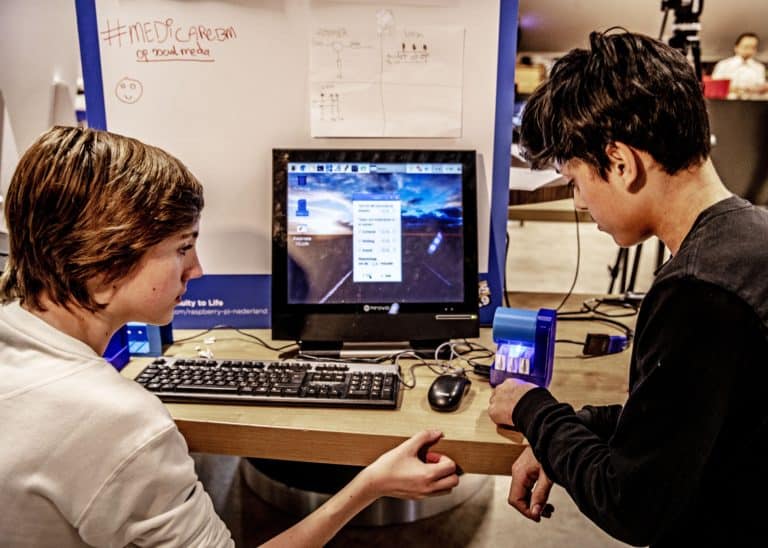Selling more than 44M units in a mere ten-year period, the tiny and affordable computer “Raspberry Pi” continues to make a long-lasting impact.
Raspberry Pi – the ARM-based, cheap Linux computer – has sold some 45M units to hobbyists, students, and companies making internet-connected devices ten years following the launch of the first product.
Having no screen or keyboard, this tiny computer was readily sold when it was initially launched. Even the makers thought they could sell anywhere between 1000 and 10000 units, at most; however, the foundation successfully sold more than 700000 units in a year.
About the expansion
The Raspberry Pi line-up includes a range of things today, such as “Raspberry Pi 4”, “Raspberry Pi 400 having a keyboard ($70)”, “different hardware attached-on-top extensions,” and “ versions varying from 2GB-8GB RAM.”
The purpose of Raspberry Pi (single-board computer “SBC”) is education; whatever profit the company gains goes directly to “Raspberry Pi Foundation.”
“A group of us had founded the Raspberry Pi Foundation in 2008, aiming to reverse the decline in applications to study Computer Science at Cambridge by providing young people with a fun, robust, low-cost computer with which they could learn to program,” says the company chief Eben Upton.
Raspberry Pi today computes modules, has launched a range of units (six generations) and saw its devices placed in space and across the Earth.
“Our products have flown under weather balloons; traveled to the International Space Station, penguin colonies in Antarctica, the insides of volcanoes, and the bottom of the sea; and been built into supercomputers, cucumber sorters, and hospital ventilators. Tens of thousands of children used them to study at home during the pandemic,” said Upton.
The giant impact of Raspberry Pi
Thanks to the nonprofit “Raspberry Pi Foundation,” millions of youngsters learn how to code and program through various online courses. Due to this, the foundation has earned the massive support of developers, volunteers, teachers, parents, resellers, and suppliers.
Even the “University of Cambridge” celebrated Raspberry Pi’s tenth anniversary. They say that Pi has generated a market of $1B worth, created hundreds of job opportunities, and changed the way developers and engineers design systems for IoT (Internet of Things).
The ride hasn’t been smooth, though: chip costs were falling or flat in 2012; due to pandemic, Raspberry Pi increased chip prices; 2GB RAM also increased by $10-$45 due to worldwide semiconductor shortage.
